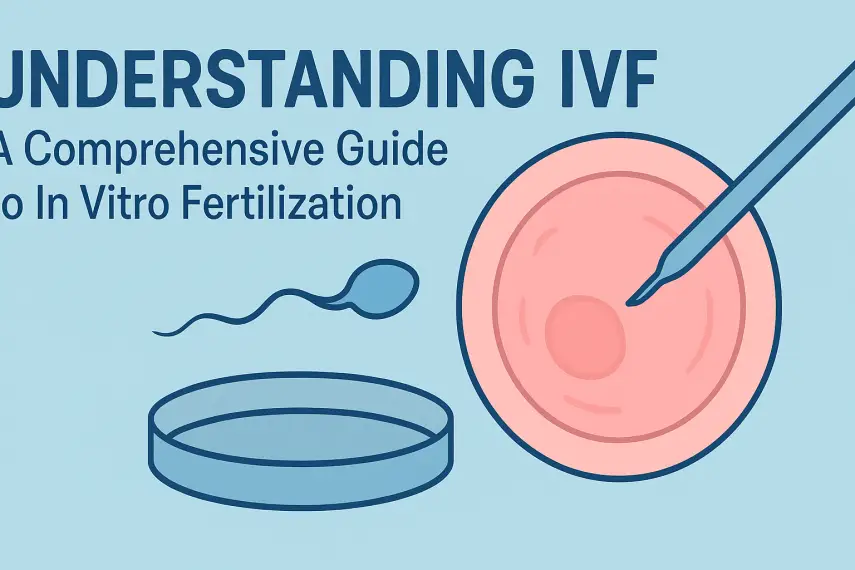
Comprehensive Guide to Women, Mother & Child Health: Empowering Families for a Healthier Future
📑 Contents
Comprehensive Guide to Women, Mother & Child Health: Empowering Families for a Healthier Future
Women, mother, and child health are the cornerstones of strong families and thriving communities. From preconception to postnatal care, and from infancy to adolescence, understanding the unique health needs at each stage is crucial. This comprehensive guide explores vital aspects of women’s health, maternal care, and child wellness, offering practical, evidence-based advice for empowering families and promoting lifelong well-being.
Understanding Women’s Health: Foundations for Family Wellness

Women’s health encompasses a wide range of physical, mental, and social dimensions. Prioritizing preventive care, regular screenings, and healthy lifestyle choices not only benefits women but also lays the groundwork for healthy pregnancies and children.
Key Health Concerns for Women
- Reproductive Health: Menstrual health, contraception, fertility, and menopause management.
- Chronic Conditions: Heart disease, diabetes, breast and cervical cancers, osteoporosis, and autoimmune disorders.
- Mental Health: Addressing depression, anxiety, and stress through counseling, support groups, and self-care strategies.
- Preventive Care: Regular checkups, Pap smears, mammograms, and vaccinations.
Practical Tips for Women’s Health
- Schedule annual health screenings and gynecological exams.
- Engage in regular physical activity and balanced nutrition.
- Manage stress through mindfulness, hobbies, and social support.
- Stay informed about family medical history and genetic risks.
Maternal Health: Nurturing Mothers Before, During, and After Pregnancy

Maternal health is critical for the well-being of both mother and child. Comprehensive care before, during, and after pregnancy ensures safer deliveries, healthier babies, and improved long-term outcomes.
Stages of Maternal Health
- Preconception: Optimizing health before pregnancy through nutrition, exercise, and managing chronic conditions.
- Prenatal: Regular antenatal checkups, screening for complications (such as gestational diabetes and preeclampsia), and taking prenatal vitamins.
- Postnatal: Monitoring physical recovery, emotional well-being, and supporting breastfeeding and infant care.
Common Maternal Health Challenges
- Gestational diabetes and hypertension
- Postpartum depression and anxiety
- Complications during labor and delivery
- Access to quality healthcare and support
Child Health: Building Resilience From Infancy to Adolescence

Children’s health is shaped by genetics, environment, nutrition, and access to medical care. Focusing on early development, immunizations, and preventive care paves the way for a healthy adulthood.
Essential Child Health Milestones
- Newborn screenings and regular pediatric checkups
- Timely vaccinations to prevent infectious diseases
- Growth monitoring and developmental assessments
- Oral health and vision screening
Common Childhood Illnesses and Prevention
- Respiratory infections, diarrhea, and common colds
- Allergies and asthma
- Skin conditions like eczema
- Prevention through hand hygiene, nutrition, and safe environments
Nutrition for Women, Mothers, and Children
Proper nutrition is vital at every stage of life, especially for women of reproductive age, pregnant and breastfeeding mothers, and growing children. Balanced meals support immune function, cognitive development, and overall health.
| Life Stage | Essential Nutrients | Recommended Foods |
|---|---|---|
| Women of Reproductive Age | Iron, Folic Acid, Calcium, Vitamin D | Leafy greens, dairy, lean meats, fortified cereals |
| Pregnancy | Folic Acid, Iron, DHA, Protein | Eggs, fish, nuts, whole grains, prenatal vitamins |
| Lactation | Protein, Calcium, Vitamin B12, Fluids | Milk, yogurt, legumes, water |
| Infancy (0-2 years) | Breastmilk or formula, Iron, Vitamin D | Breastmilk, iron-fortified cereals, pureed fruits/veggies |
| Childhood (2+ years) | Calcium, Fiber, Protein, Vitamins A & C | Dairy, fruits, vegetables, lean meats, whole grains |
Mental Health: Supporting Emotional Well-being Across Generations
Mental health is as important as physical health for women, mothers, and children. Addressing emotional challenges, fostering resilience, and seeking help when needed are essential for healthy families.
Common Mental Health Issues
- Women: Depression, anxiety, postpartum mood disorders
- Children: Behavioral issues, anxiety, learning difficulties
Strategies for Mental Wellness
- Encourage open communication and emotional expression
- Establish routines and healthy sleep habits
- Promote physical activity and outdoor play
- Seek professional support for persistent concerns
Preventive Care and Health Screenings
Regular preventive care and screenings are crucial for early detection and management of health issues. Staying up-to-date with recommended checkups and vaccines ensures the best outcomes for women, mothers, and children.
Recommended Screenings and Checkups
- Women: Pap smears, mammograms, blood pressure, cholesterol, bone density tests
- Pregnant Women: Ultrasounds, gestational diabetes screening, blood tests
- Children: Growth and development assessments, vision and hearing tests, immunizations
Empowering Families: Practical Tips for Everyday Health
Healthy families thrive on knowledge, support, and proactive care. Here are actionable steps to foster well-being at home:
- Maintain open, supportive communication among family members
- Practice safe hygiene and healthy eating habits
- Encourage regular physical activity and outdoor time
- Establish consistent routines for sleep, meals, and play
- Stay informed about age-appropriate health milestones
Frequently Asked Questions (FAQs)
1. What are the most important health screenings for women?
Key screenings include Pap smears for cervical cancer, mammograms for breast cancer, blood pressure and cholesterol checks, and bone density tests for osteoporosis. Talk to your healthcare provider about personalized screening schedules.
2. How can I support my mental health during pregnancy and postpartum?
Prioritize rest, maintain a support network, communicate your feelings, and seek professional help if you experience persistent sadness, anxiety, or mood swings. Postpartum depression is common and treatable—don’t hesitate to reach out.
3. What vaccinations are essential for children?
Core vaccines include those for measles, mumps, rubella (MMR), polio, diphtheria, tetanus, pertussis (DTaP), hepatitis B, and seasonal influenza. Follow your pediatrician’s recommended vaccination schedule.
4. How can mothers ensure proper nutrition for themselves and their children?
Focus on whole foods, a variety of fruits and vegetables, lean proteins, whole grains, and adequate hydration. Prenatal and postnatal supplements may be needed—consult your healthcare provider for personalized advice.
5. What steps can families take to prevent common childhood illnesses?
Promote handwashing, ensure vaccinations are up to date, maintain a clean and safe environment, and encourage healthy eating and physical activity to boost immunity.
Summary
Women, mother, and child health are interconnected and foundational to family and community well-being. By prioritizing preventive care, nutrition, mental health, and regular checkups, families can foster resilience and vitality at every stage of life. Empower yourself with knowledge, seek support when needed, and take proactive steps to build a healthier future for you and your loved ones.











